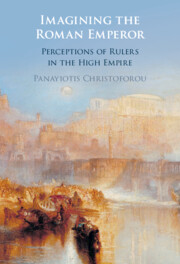This article argues that one of the central theses of the counter-imperial reading of Paul has been more asserted than proved – namely, the thesis that Paul disguised anti-imperial sentiments in his letters specifically because speaking out against imperial authorities was too dangerous. This claim is the basic assumption behind the search in Paul's letters for ‘hidden’ or ‘coded’ transcripts. Such an approach can be found in the works of Warren Carter, N. T. Wright, and Richard Horsley, among others. But how likely is it that Paul would have felt the need to encode his anti-imperial sentiments? Was there really a risk that Roman soldiers would have intercepted Paul's mail or prosecuted him for its contents? Is the ‘hidden transcript’ idea an anachronistic concept based on modern surveillance states and transposed into the ancient world? This paper questions how likely it is that Rome's provincial governments would have had the inclination or ability to police private correspondence for seditious sentiments. From there, we can determine whether Paul is speaking as openly as he wants or is in fact protecting himself using ‘hidden transcripts’.


